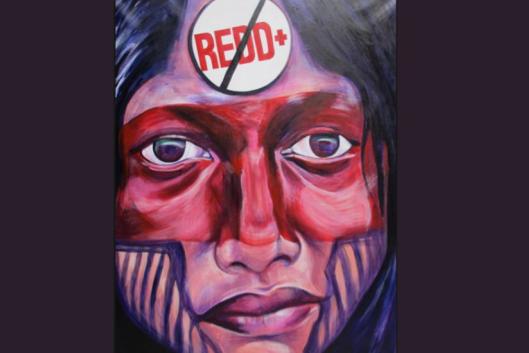The goal of the private investment firm Terra Global Capital is “to facilitate the market for land use carbon and other environmental credits (…) by providing technical expertise for the measurement and monetization of land use carbon credits and carbon finance through a dedicated investment fund.”
Terra Global has teamed up with Cambodia’s Forestry Administration and the international NGO Pact Cambodia to conduct the country’s first ever REDD project, in the deep woods of Oddar Meanchey province in northwest Cambodia. Oddar Meanchey suffers from one of the highest rates of deforestation in the country, caused by mining projects, agro-industrial crop plantations, military settlements in response to border disputes, illegal logging and other conflicts that afflict local communities.
The project plans to obtain revenues from the international sale of forest carbon credits allegedly generated by the investment firm’s guarantee that the carbon that was at risk of being released through deforestation will remain stored in the trees of the 64,318 hectares of forests – so-called “avoided carbon emissions” – for the 30 years the project would last.
These revenues, claims the company, will be used to “fund activities that reduce deforestation, including community forestry patrols and fire control, community-based water resource development projects, strengthening and clarifying land tenure, sustainable farming systems, agricultural intensification and fuel-efficient stoves.”
In November 2011, a U.S. government agency, the Overseas Private Investment Corporation (OPIC), which provides financing and insurance for U.S. investors involved in projects in Southern countries, provided USD 900,000 in political risk insurance for Terra Global Capital.
Historically, OPIC support has consisted mainly of direct financing and insurance to private investors in projects in Southern countries, but since 1987 the agency has supported a growing number of private equity investment funds, many of which serve as financial intermediaries that in turn finance projects in the South. OPIC has now committed at least USD 3.6 billion to more than 50 private equity funds. Critics of REDD projects say, inter alia, that private equity funds often demand too high a profit to be suitable for development projects and often seek to liquidate investments in a few years, to the detriment of long-term sustainable development.
OPIC is shifting its energy portfolio away from large fossil fuel projects and towards so-called renewable energy projects, and now aggregates traditionally defined renewable energy projects into a larger category of projects that the agency calls “renewable resources”, which includes REDD and agricultural projects. OPIC’s “renewable resources” commitments grew from USD 10 million in 2008 to USD 1.1 billion in 2011.
The U.S. government now counts OPIC-financed and insured “renewable resources” projects towards U.S. international “climate finance” commitments, which refers to commitments from Northern countries to provide funding to help Southern countries respond to climate change. However, in the case of OPIC “renewable resources” support, financing and insurance are rather directed to OPIC’s private sector clients, which typically include U.S. investors. In so doing, the U.S. pursues a climate and development path that is increasingly defined by, and for the benefit of, private interests.
OPIC is using political risk insurance, which is supposed to protect against wrongful political actions, to protect REDD investors against the implementation of regulations governing REDD activities at the national or provincial level that a country – in this case Cambodia – might impose in the future. Such regulations would potentially include the setting of national or provincial emissions reductions targets, accounting and monitoring systems, regulations on how ownership of credits and revenue sharing from credits is determined, and other rules for REDD projects. Those requirements might change the way a REDD project sponsor conducts the project with potentially large financial implications for REDD project investors who are making investments ahead of these negotiations and are assuming a potentially different set of conditions governing their investments.
OPIC’s support for the Oddar Meanchey REDD project in Cambodia sets a global precedent – including the first ever political risk insurance policy for a REDD project.
OPIC and the project developers claim that the Oddar Meanchey REDD project will have significant climate and local environmental and development benefits. But the viability of REDD projects rests largely on carbon markets, which are not reliable. Indeed, OPIC’s political risk insurance protects project investors, and not necessarily local communities, in the event that the covered political risks manifest themselves. In fact, local communities residing around the forests seem to be the last in line for receiving project benefits, making decisions about the project, and protection against market and political risks.
Perversely, OPIC support for REDD and other renewable resources projects is counted toward the U.S. government’s climate finance commitments to developing countries, even though this support is provided to private parties rather than to governments and may protect against actions that the Cambodian government may take to defend its own interests in the event that the project fails to deliver promised benefits.
Article based on edited excerpts from: “Precedent-Setting Insurance for REDD Project in Cambodia Raises Concerns”, a paper by Pacific Environment, FERN and Focus on the Global South, sent by Shalmali Guttal, Focus on the Global South,s.guttal@focusweb.org
